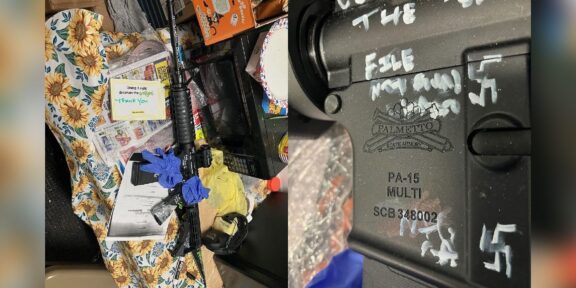I. Lewis "Scooter" Libby, Vice President Dick Cheney’s chief of staff, was indicted Friday, Oct. 28, on five counts of perjury, obstruction of justice, and making false statements during the investigation of the leak of a CIA operative’s identity.
Libby resigned shortly after the indictment. Karl Rove, President Bush’s top advisor and mastermind behind his 2000 and 2004 election campaigns, was not indicted. However, a cloud of suspicion still hovers above Rove.
Libby was accused of lying to the FBI on two separate occasions: Oct. 14 and Nov. 23, 2003. He was also accused of lying to a grand jury on March 5 and March 24, 2004. Libby engaged in obstruction of justice by telling three different reporters about Valerie Plame’s identity, which was classified information. The reporters were Tim Russert of Meet The Press, Matt Cooper of Time magazine, and Judith Miller of the New York Times.
"When citizens testify before grand juries they are required to tell the truth,” Justice Department Special Counsel Patrick Fitzgerald said in an Oct. 28 press release. "Without the truth, our criminal justice system cannot serve our nation or its citizens. The requirement to tell the truth applies equally to all citizens, including persons who hold high positions in government. In an investigation concerning the compromise of a CIA officer’s identity, it is especially important that grand jurors learn what really happened." Fitzgerald has been pursuing this case for a little over two years.
The CIA leak probe, widely known as Plamegate in the media, has become an increasingly complex political soap opera. The leak and the probe sprang from a trip U.S. Ambassador Joseph C. Wilson took to Niger to find out if Saddam Hussein had tried to buy yellowcake uranium. Bush claimed Hussein possessed weapons of mass destruction and used this rationale to justify This was part of Bush’s rationale for going to war with Iraq, that Hussein possessed weapons of mass destruction and posed an imminent threat to the United States.
Wilson claimed he found no evidence that Hussein had made or attempted to make such a purpose and said in a July 6, 2003 New York Times op-ed, "What I Didn’t Find In Africa," that he believed Bush "twisted" intelligence to make a case for going to war. Soon after the article was written, columnist Robert Novak revealed the true identity of Wilson‘s wife, Valerie Plame, who also authorized the trip to Niger. Just days later, Plame’s identity was revealed in a column written by Robert Novak.
Although Cheney has also been associated with the leak, Fitzgerald has declined to confirm or deny this fact, since witnesses in a grand jury trial can only offer conjecture about an ongoing investigation.




